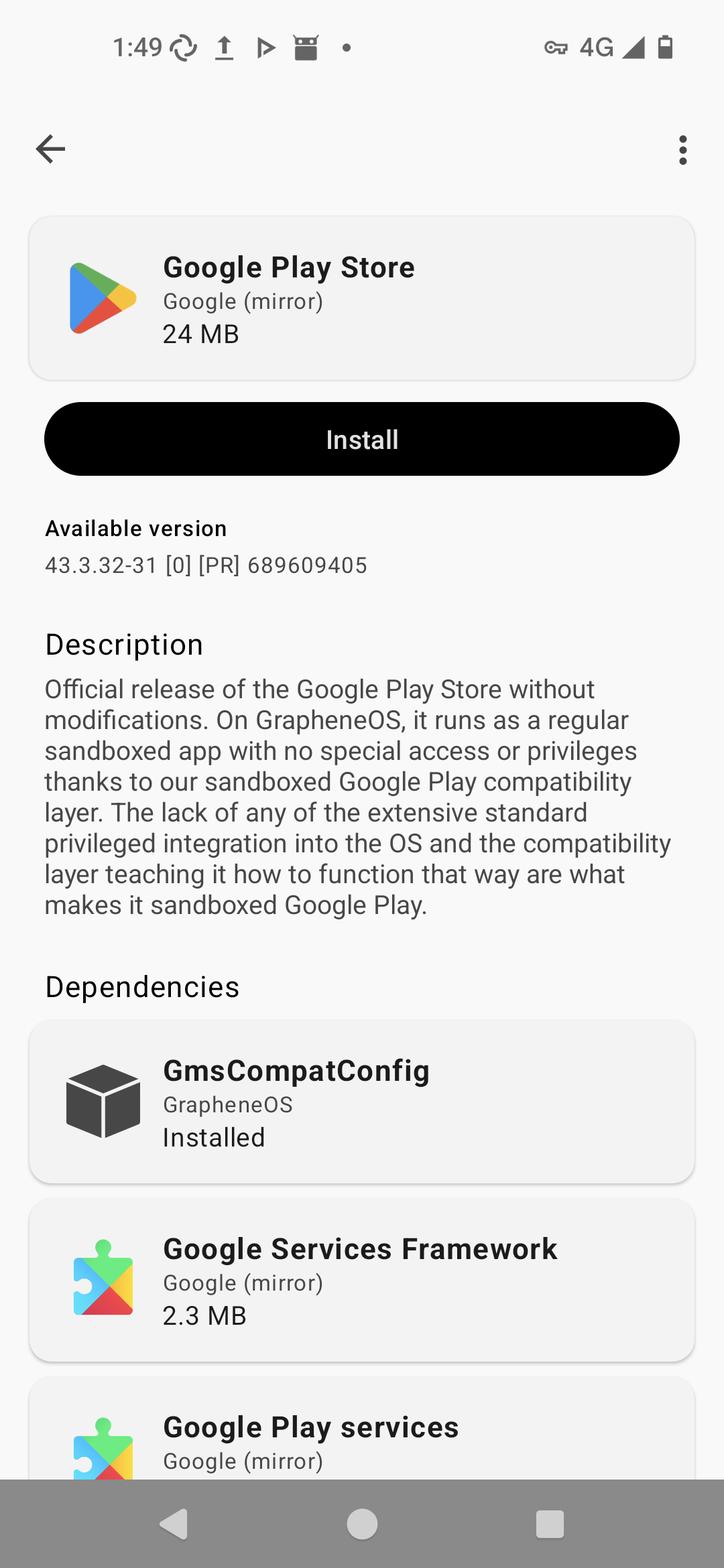

I wonder if they’re planning road diets on the surface. Maybe some bike lanes, bus lanes and wider footpaths.
(For the record I highly doubt that, but if such a wasteful project were to go ahead that would be the best concession IMO).
Website: https://roffey.au/


I wonder if they’re planning road diets on the surface. Maybe some bike lanes, bus lanes and wider footpaths.
(For the record I highly doubt that, but if such a wasteful project were to go ahead that would be the best concession IMO).


yggmail specifically, probably not. yggdrasil uses TCP/IP and the Meshtastic latencies to perform connections would be too high AFAIK. It would probably only work in a fairly well-connected network. yggdrasil could be used directly over a WiFi protocol but it would need fairly good reception to function.
N.B. I haven’texperimented with this myself.


yggmail is a fairly obscure and experimental take on email on a mesh network: https://github.com/neilalexander/yggmail
https://forums.debian.net/ exists for Debian


My old community garden used a Signal group which worked really well.
I’m currently part of a bushcare group which I believe use Facebook but not sure how active it is. We have a regular monthly schedule which I show up to in-person.
I can second the annoyance of people using Facebook groups for everything. I can’t control what I see on Facebook so I won’t use it. I’ve found other groups impossible to join for this reason - like my local bike user group. Real shame because I’d like to join but I found the in-person meetings were largely discussing things in the Facebook group.


Hmm I don’t usually chill my water but I heard that helps a lot. Might start doing that myself.
The taste is very noticeable unchilled. I noticed after rinsing when brushing my teeth. I heard the water was bad in the western suburbs and it was about 24 hours later that I started noticing the taste in Brisbane’s south (I guess the water towers get filled at different times).


I’ve been double-filtering mine with a Brita water jug which removes nearly all of the taste.


Really good points. I like that the concept is saleable both as a reliability improvement for trains and a safety and capacity improvement for the road network (which can also include buses). Everyone’s a winner.


Graphene shills have been banging on this point for donkey’s ages. Reality is that many people use phones that are out of OEM support and many OEM ROMs are bundled with questionable software (Oppo, Samsung etc.) There are some decent criticisms to be made about LineageOS, but others to be made about Grapheme, like its Google-suggestive configurations, which is quite bad for security and privacy. Graphene says this is all optional and not part of the OS, but doesn’t include any equivalent F-Droid installer.


There were gates put in place and bouncers to prevent people from riding straight through. You could still get off your bike, walk past the bouncer, and then ride to the next gate, which plenty of cyclists were doing.
Personally one of the issues is the casino bouncers doing traffic control. Even as a compliant citizen I have been berated and harassed by bouncers.
My original reply to the OP’s question, thoughts and experiences with GrapheneOS, was along the lines of “I think GrapheneOS is Google-centric” and you disagreed saying that GrapheneOS was a “blank slate”. Honestly I think you’re being a bit defensive and maybe a little gaslighty which is why I downvoted.
GrapheneOS provides fairly prominent links to a Google Play installer or the relatively obscure Aurora Store. The Aurora Store client app is FOSS but the store is quite literally a proxy for the Google Play Store. The apps in the screenshots on Ausora Store’s homepage are mostly apps that use or require Google Play Services. This is all very Google-centric.
If Google Play wasn’t an important part of GrapheneOS, it could just not contain a prominent link to the Google Play installer. Or it could contain a link to install a fairly prominent app store that offers an ecosystem outside of Google Play. But it exclusively steers users to the Google Play ecosystem as a part of the default, packaged experience, hence my original reply to the OP.
But it is Google Play-centric. There is an option to install Google Play. There is not an option to install other app stores like F-Droid, unlike some of the other AOSP clones.
Screenshot for you. Google is explicitly linked to for easy setup. F-Droid is not. “There is nothing” is simply disingenuous.

I use GrapheneOS but I don’t like how Google Play-centric it is. It is geared towards people installing their “normal” apps with the GrapheneOS special sauce sandboxing. No F-Droid by default where all of the FOSS apps are.


Even with a 10% pay cut the VC will be remunerated over $1,000,000 per year, even despite the university’s poor financial performance.
Having worked at a university the waste is in plain sight. Vendor lock-in, consulting fees (especially with the Big 4), high executive pay, and compartmentalisation between professional and academic staff are high on the list.
In my area (different university) there was a constant stream of poor decision making. Moving to the cloud? Let’s hire a consultant to tell us what to do, and then do it in the worst possible way, instead of using internal capabilities! I suggested that the contract include provisions for “best practice” as listed by the vendor (HashiCorp) but this was ignored. The consultant gave us spaghetti Terraform code and an inefficient, high cost subscription layout.
The professional and academic staff barely talk in my experience. Academics do their own thing as much as possible. Professional staff throw solutions over the wall, mostly because of the existence of the wall in the first place.
The university was looking at using “crotch sensors” (motion sensors under the desk) to measure desk utilisation, spending money on “smart” ambient sound solutions etc. in the executive building, and other high cost solutions looking for a problem, at the same time as freezing staff and threatening redundancies. I was denied training but offered access to an LLM subscription (GitHub CoPilot) along with other IT staff, because AI is the going buzzword being parroted by the executives.
The higher education sector seriously needs an external review… and a proverbial kick up the bum.


I sold my car last year and barely gave it a secomd thought (I still have access to a car on weekends). Money, environment and space-saving were all factors.
I don’t think government should be in the business of subsidising driving (which is currently the case in multiple ways). Instead that money should be used to make public and active transport safe, convenient and reliable.


Absolutely. I think Victoria is the model to follow. I was more alluding to significant interstate investor activity in Qld perhaps partially due to improvements in Victoria’s housing incentives.


Here’s the actual paper of the technology (Prio) that it’s based on.
Some problems stand out:
I’m not overly familiar with the tech stack but I’d be concerned about browsers using a persistent UUID to send impressions to Mozilla’s API.
The biggest elephant in the room is that seemingly nobody wants the damn thing. It offers nothing to users, except maybe a good feeling inside that they’re supporting AdTech. It offers AdTech less than the current deal where they can collect obscene amounts of personal information for targeted advertising.


Victoria also has a vacancy tax. It’s good but downside is exporting would-be investors to other capital cities. It’s almost as if federally-coordinated action is required.
Will Signal block Australian IP addresses, or nix accounts that have a +61 phone number? I’d assume the former but if Signal and other social media platforms go for the latter it will be painful for Australian netizens.